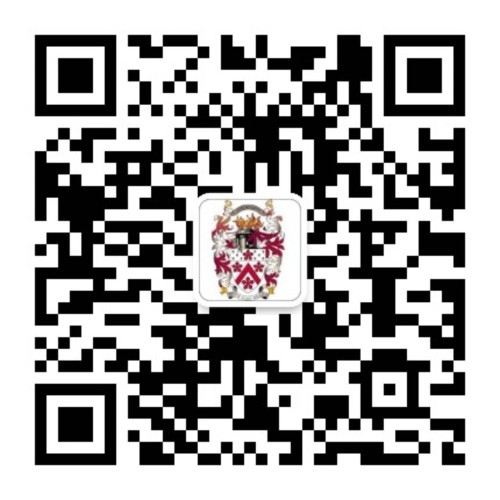We Got A Top Gold in BPhO!
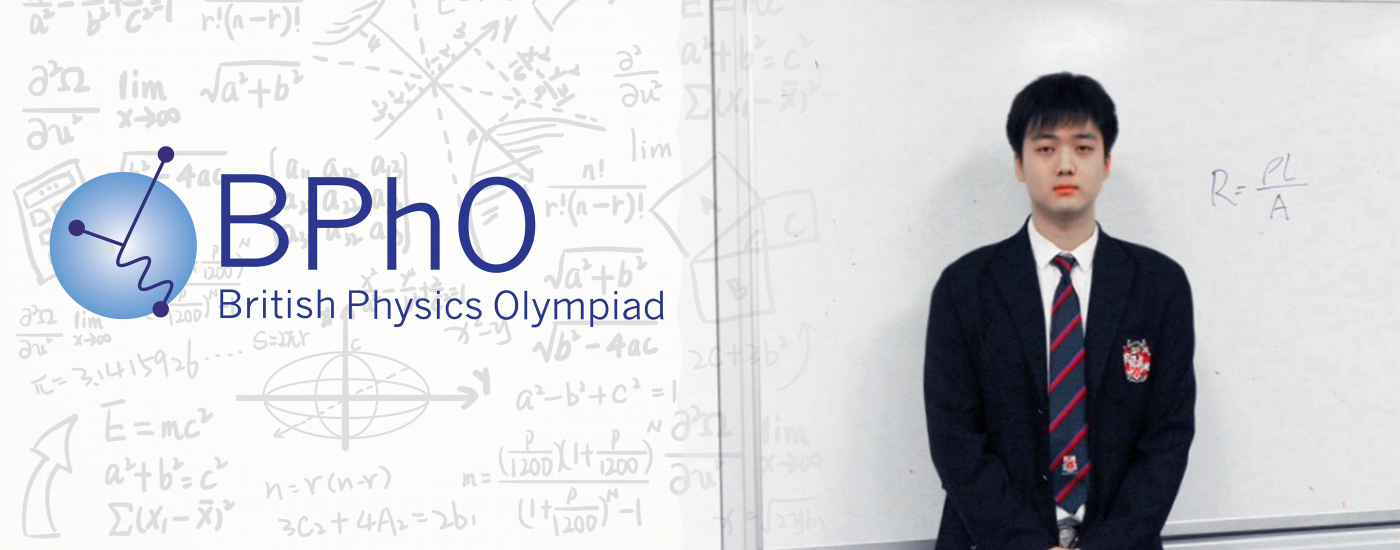
We recently received great news - Charles S, a DHSZ Y12 student, won ‘Top Gold’ in the British Physics Olympiad, which is the highest award in this competition.
Let's first take a look at the competition and is the impressiveness of this feat.
The British Physics Olympiad began in 1979 and is organised by the University of Oxford, British Physics Society and the Odgen Foundation, with offices in the Department of Physics at Oxford University. The competition is designed to test students’ understanding of physics and problem-solving skills.
The global awards are divided into Top Gold, Gold, Silver, Bronze I and Bronze II. The awards are based on a cut-off point for UK nationals first, and students from other countries re judged against this cut-off point, with the Top Gold being the top 2% of the overall score.
What does it take to stand out on a world-class 'physics stage'? We interviewed Charles and his physics teacher Ms Maxine Li (Science Teacher, Lead Teacher of Co-ordinated Science) to find out.
Use your time wisely
Charles told us that, for him, the content of the competition was completely ' beyond the teaching syllabus', being in year 12. "I studied AS at school, but when I was preparing for the exams, I found that this was not enough, so I studied A2 first. To expand the scope of knowledge more, I started to study AP* on my own. I didn't finish all of it by the time of the exam, but at least I had an overall impression and I used a lot of the knowledge." He also summed up his feelings about the competition, "Aside from just assessing knowledge, it also focuses on mindset and exam skills and strategies."
*AP courses (Advanced Placement) are essentially designed to be at the level of a first-year public American university course and can be used to prepare students for university content.
Ms Maxine explained: "To get the Top Gold Award, it's not just about the competition results, but also about the student’s school performance, which means that they have to work on both their internal studies and their extra-curricular extension without ‘dropping the ball’ on any of them. It's not easy to do well, even just in AS, but Charles was able to earn four A*s, giving him a very solid foundation to build on while competing.
So how does Charles manage to do so well in school while also being so effective after class? In Ms Maxine’s view, Charles is a student who loves to ask extremely challenging questions, "Asking questions is one of the things that shines through in Charles, and he doesn't settle for a simple answer. He asks, 'Why? ' And in the process, he's thinking deeper and deeper himself."
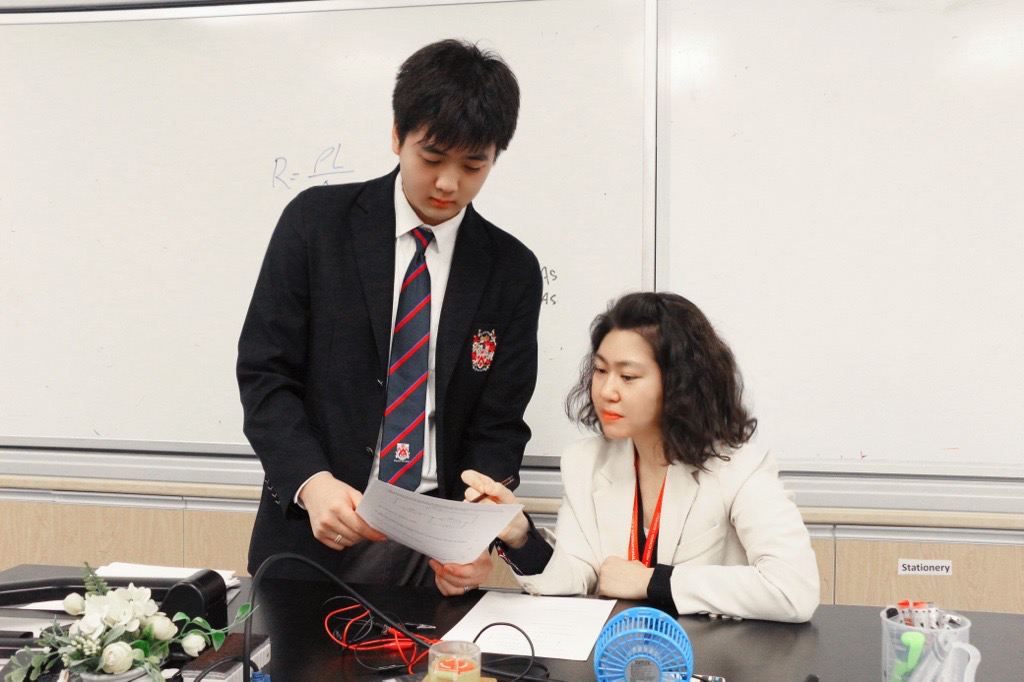
Thinking has invariably shaped Charles into a very strong, independent learner. Ms Maxine found that, when he met a problem or had an experiment to do, Charles would always try it himself first, "which explains how he is a self-taught learner. This explains why he learns on his own beyond the textbook – because he knows what he needs for his learning journey and he finds a way to do it himself, whether it's through skill-building or refinement, and he tries to practice to get the results he wants."
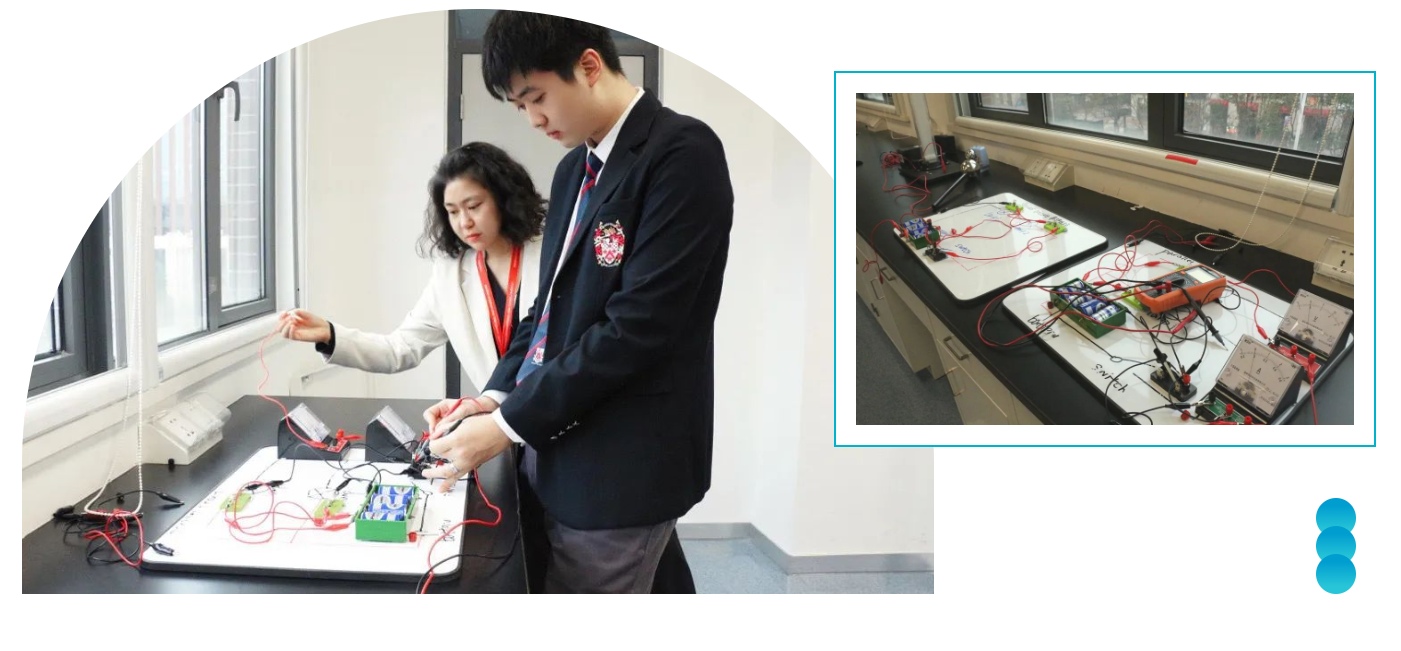
A ‘quantum entanglement’ of freedom and self-discipline
How has he become a good learner? Charles said that the teaching model of his junior school was more test-based and, therefore, learning was more passive. The learning atmosphere at DHSZ gives him more freedom, not only in terms of more flexible study time and space - allowing him to work steadily on his internal studies at his own pace – but also to expand his extra-curricular knowledge. ‘Freedom’ is also reflected in the design of his classes: If a student asks a surprising question, the teacher does not try to suppress it. Ms Maxine emphasised that, in her classes, "I wouldn't say you shouldn't ask why or just remember it like that, but would very much encourage students to keep asking questions and get them thinking, which is exactly our educational philosophy at DHSZ: to encourage independent thinking and thus complete the exploration of knowledge and logical thinking."
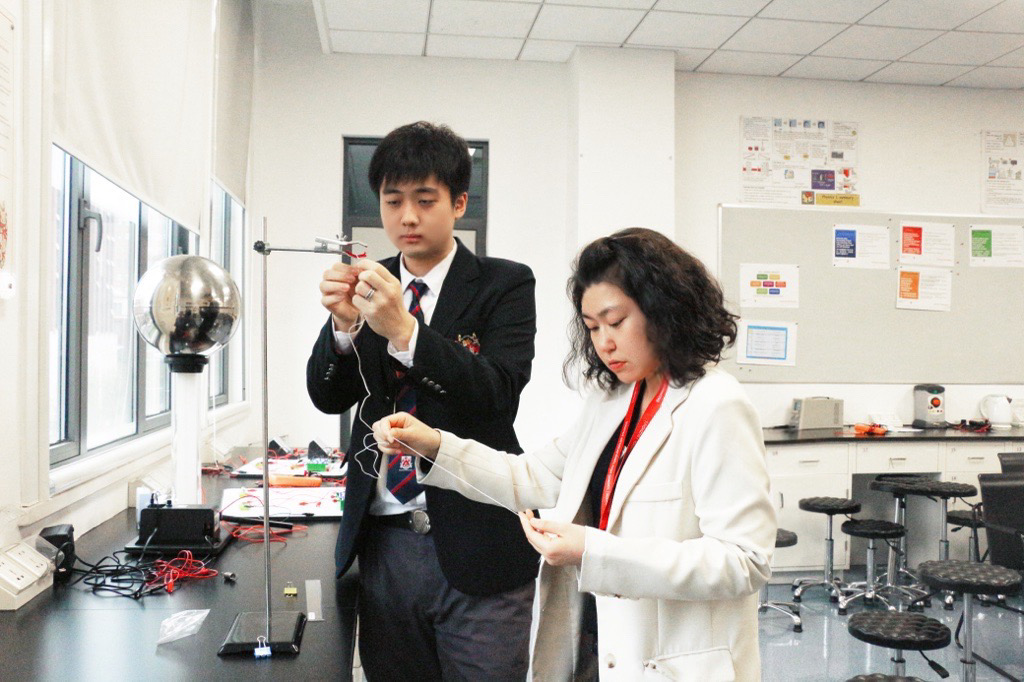
In addition to learning skills, Charles has developed and honed more different skills at school. Together with fellow Year 12 student Joe W, they establish a CCA (co-curricular activity) called the Journal Society, which is dedicated to reading literature. In the CCA, they teach students how to read research journals, essays, and academic publications, all of which are essential skills for students applying to university and for their future studies there. “I was writing an EPQ (Extended Project Qualification) on Electrical and Electronic Engineering, and Joe was preparing his essay at the time, so we used to get together to look for the literature and the idea for creating a CCA came about in the process.” For Charles, Joe is both the president of CCA and a like-minded friend on his path to studying physics. "It is Joe who provided me with the AP materials for my self-study."
Expanding your circle of knowledge
Zeno once used the metaphor of a big circle and a small circle as a metaphor for the area of knowledge that he and his pupils each possessed. Outside the circle are things they don’t know He said, “The circumference of the big circle is larger than that of the small circle, so that I may have more knowledge, but I also realize that there is still more I do not know.” In Charles, we see "the more you know, the less you realise you know". He humbled himself by saying that he is always having many questions that he could not solve. Whenever he could not overcome them by himself, he would ask his teachers or discuss with his peers to work on them together. "In the process, I deepened my understanding of the problem, and through the perspective of others, I can find out that the question I’m currently considering should not be the only one I’m thinking about. After synthesising and referring to the ideas of my teachers and classmates, my mind has been opened up even more.”
Finally, for those students who are also interested in physics, Charles advises, "Make sure you get a good grounding in IGCSE and AS first and wait until you have a solid foundation before going on to study a bit more to further expand your knowledge."





